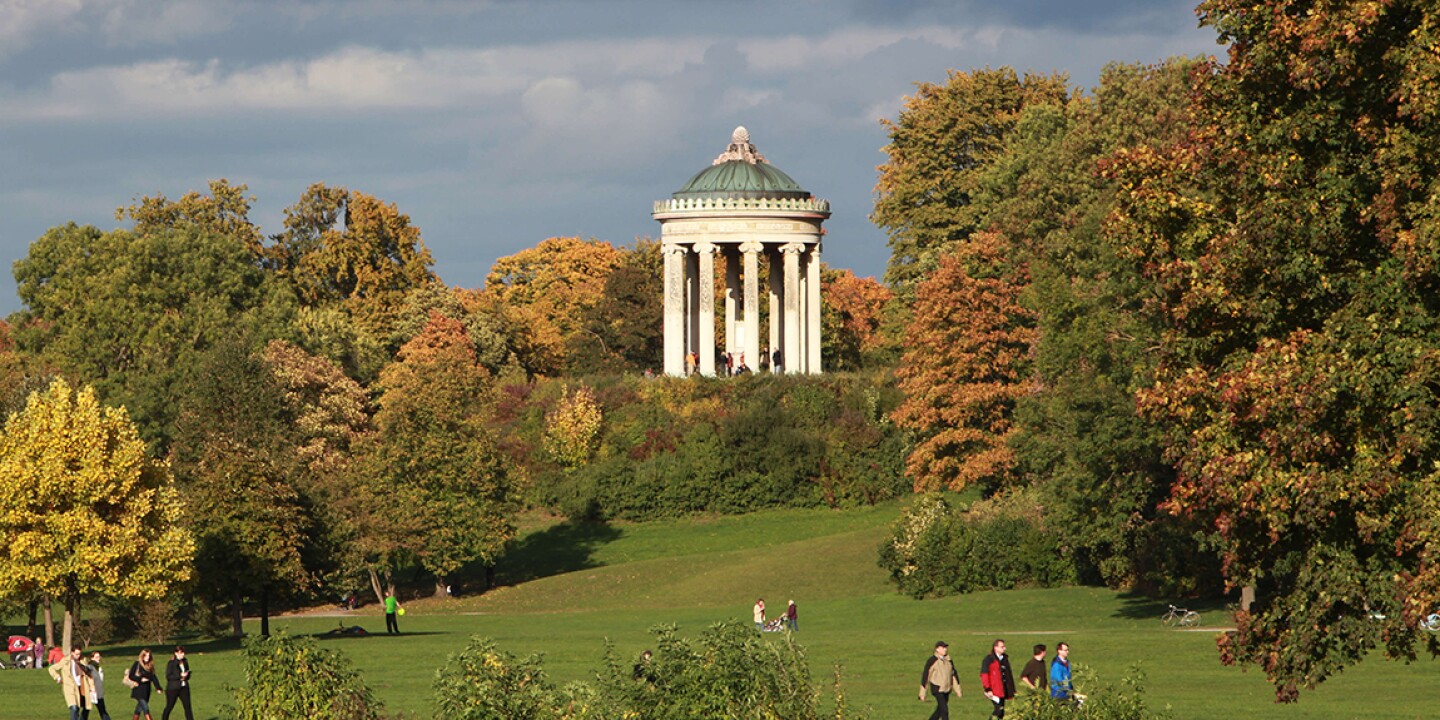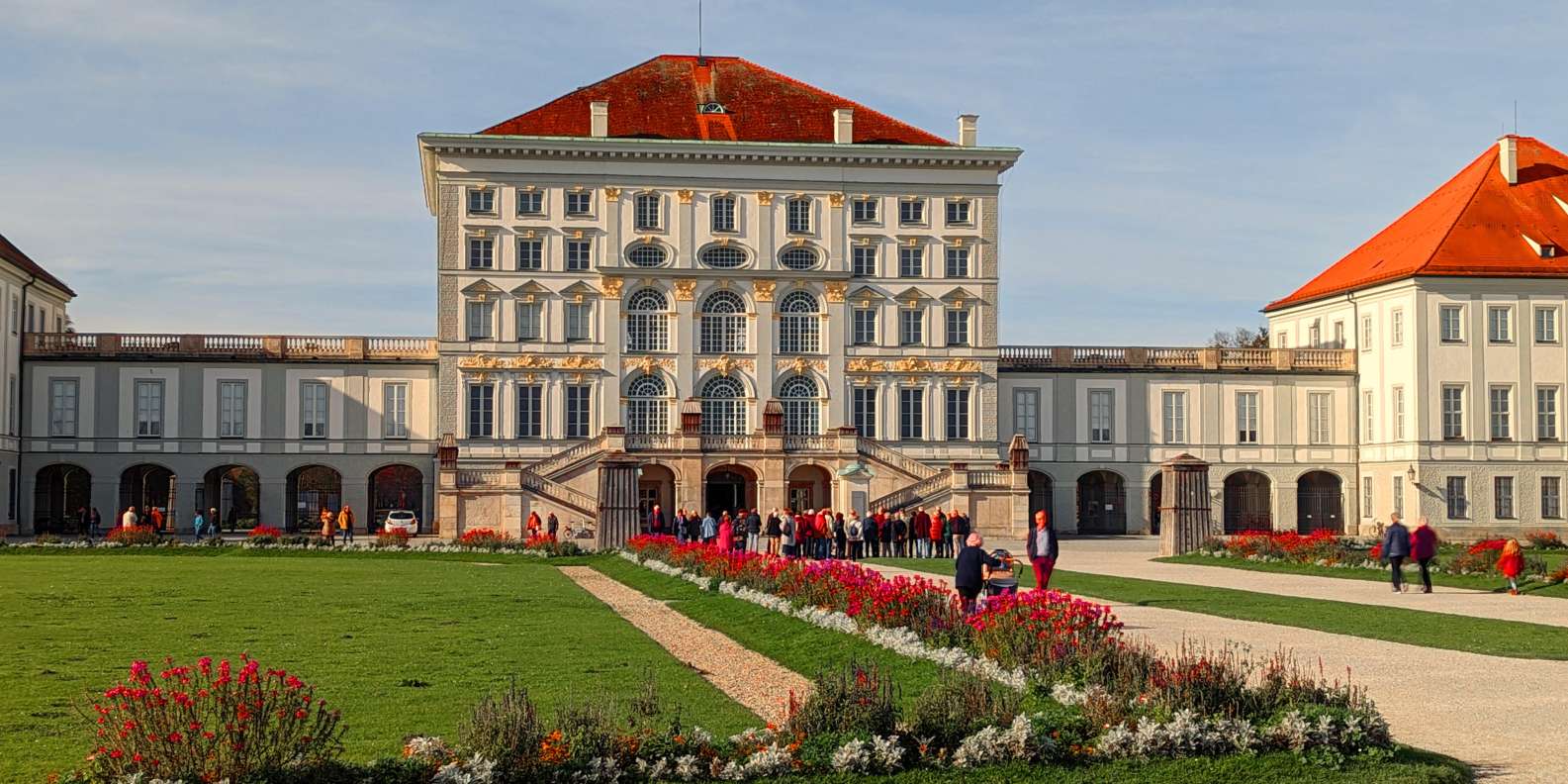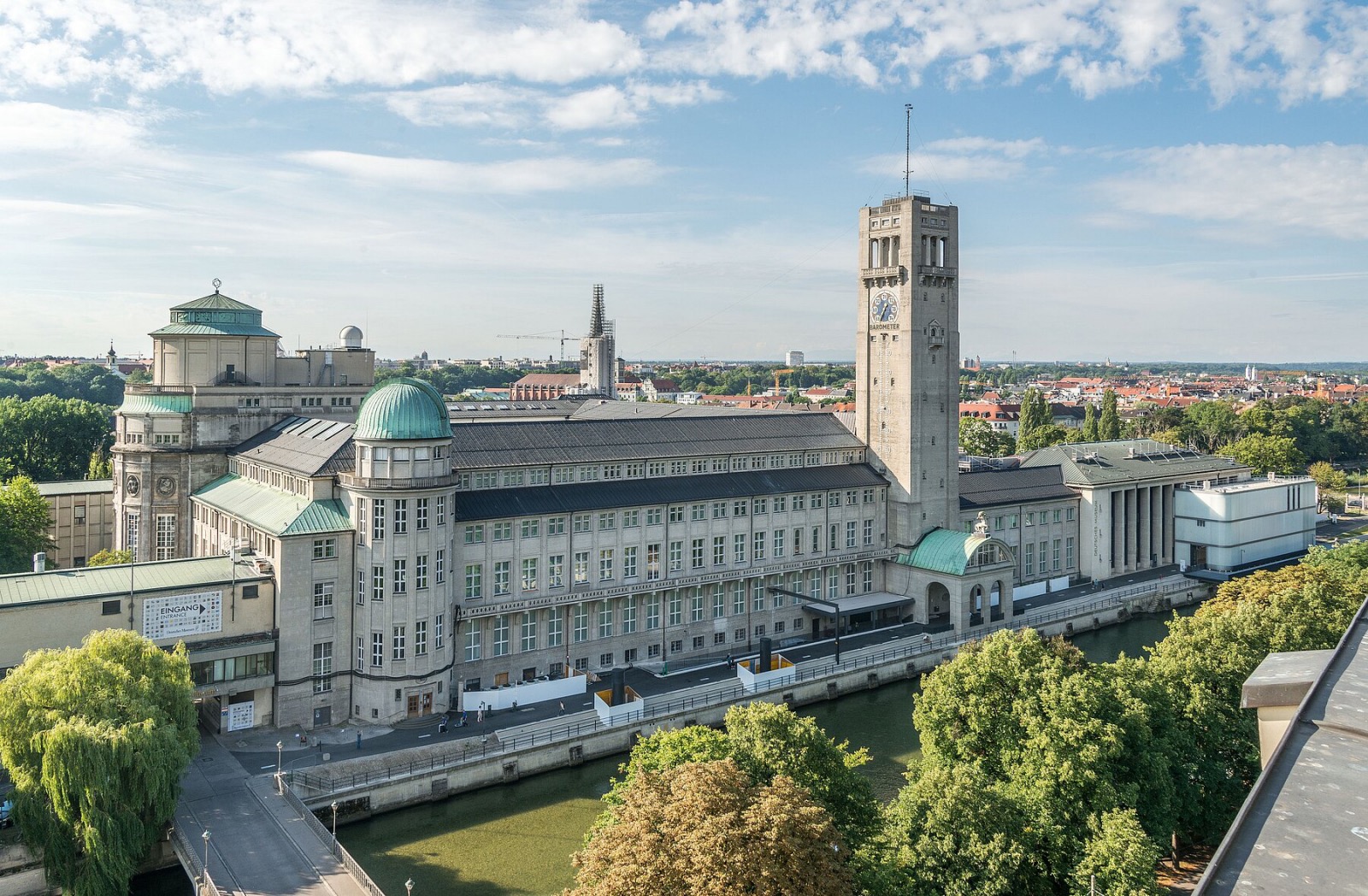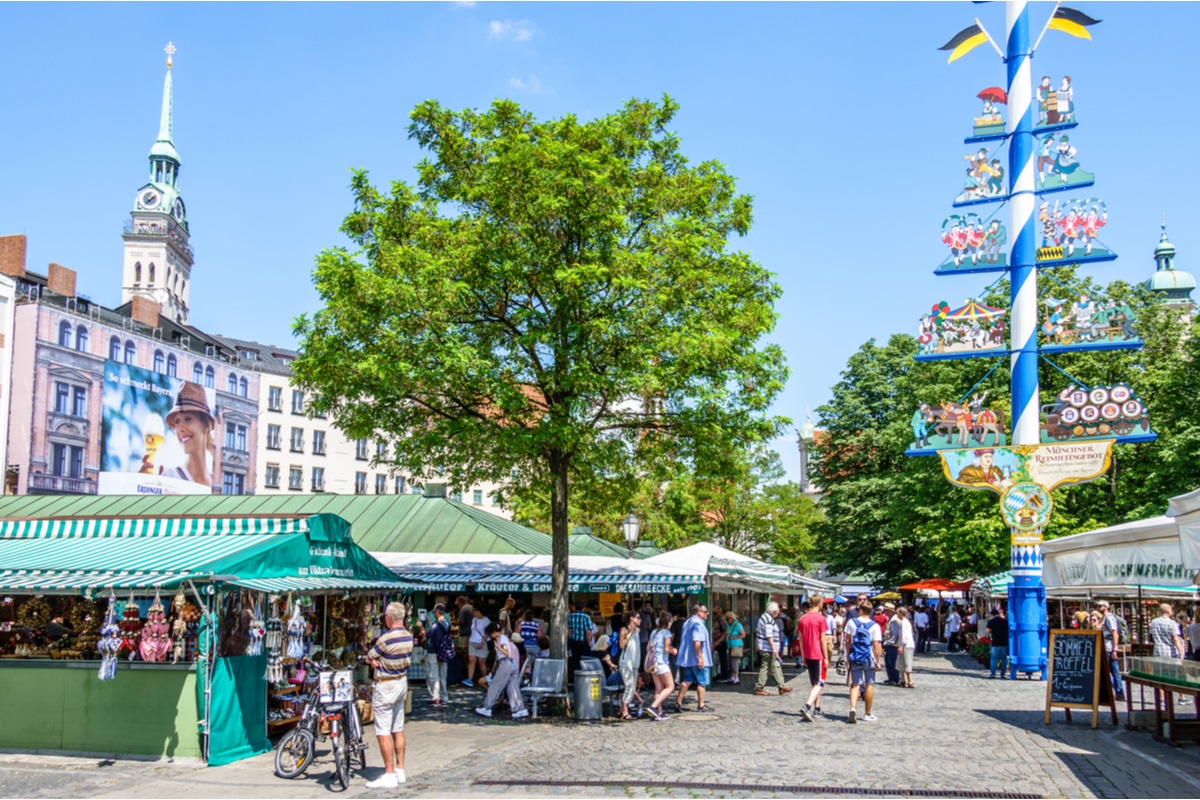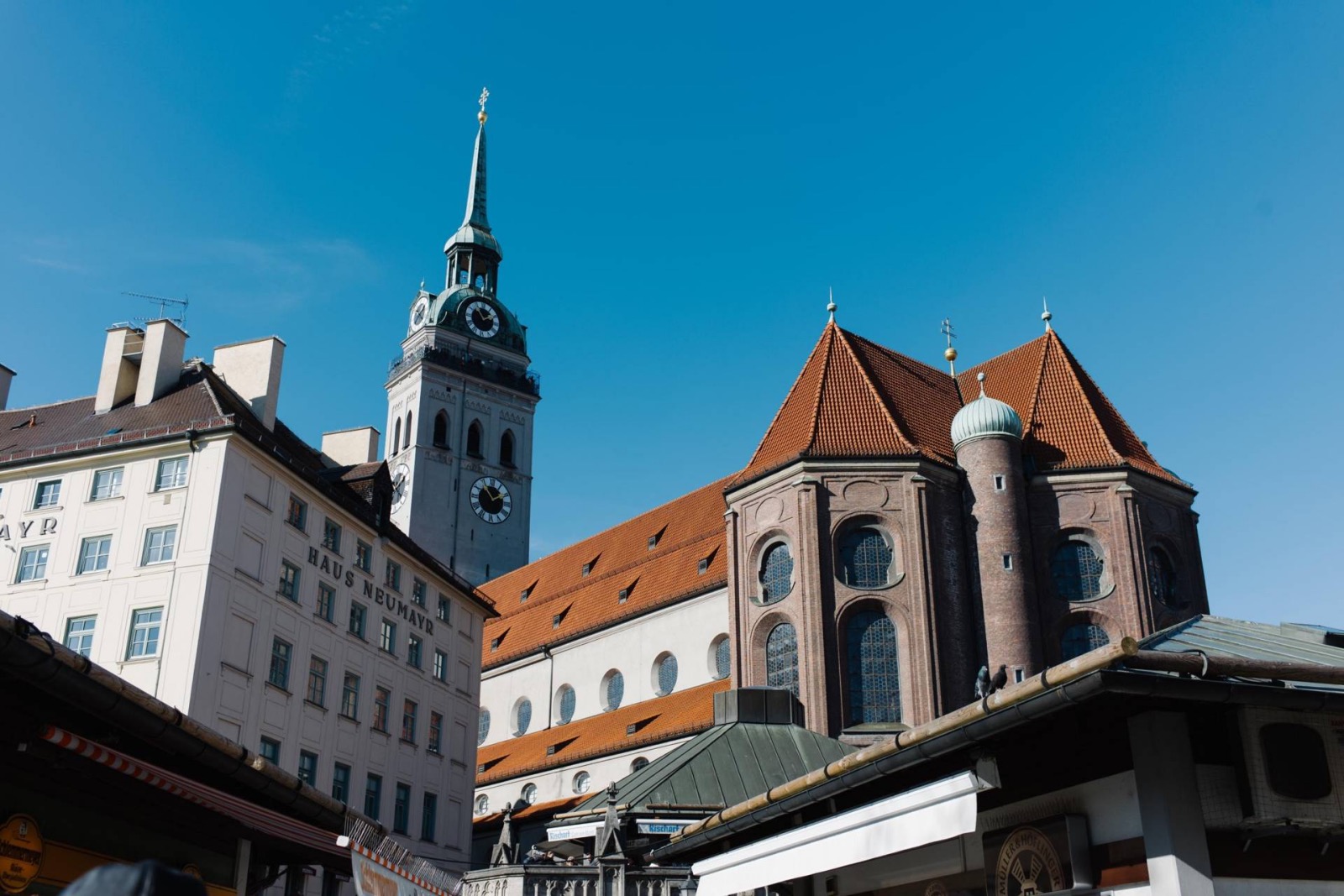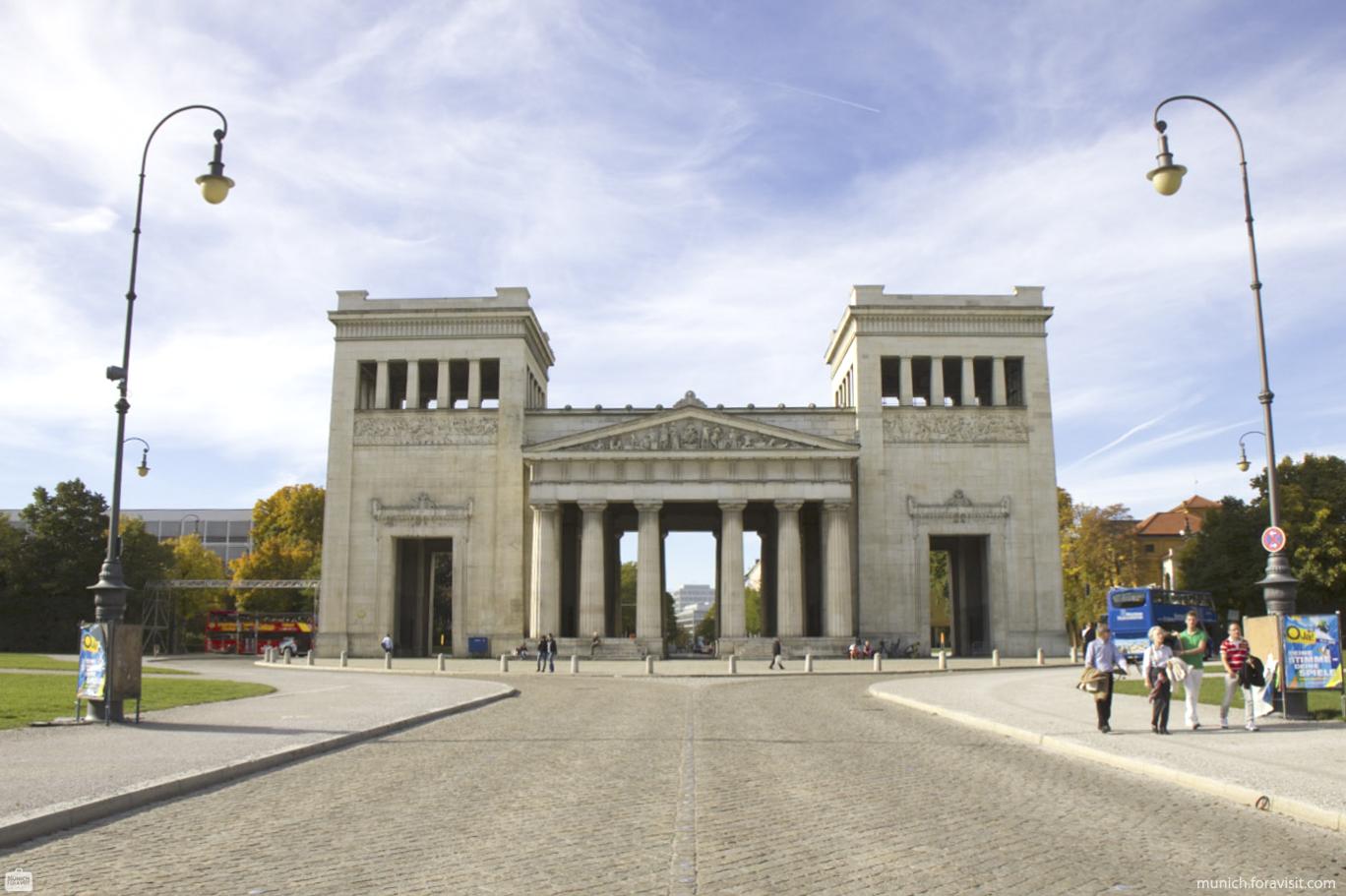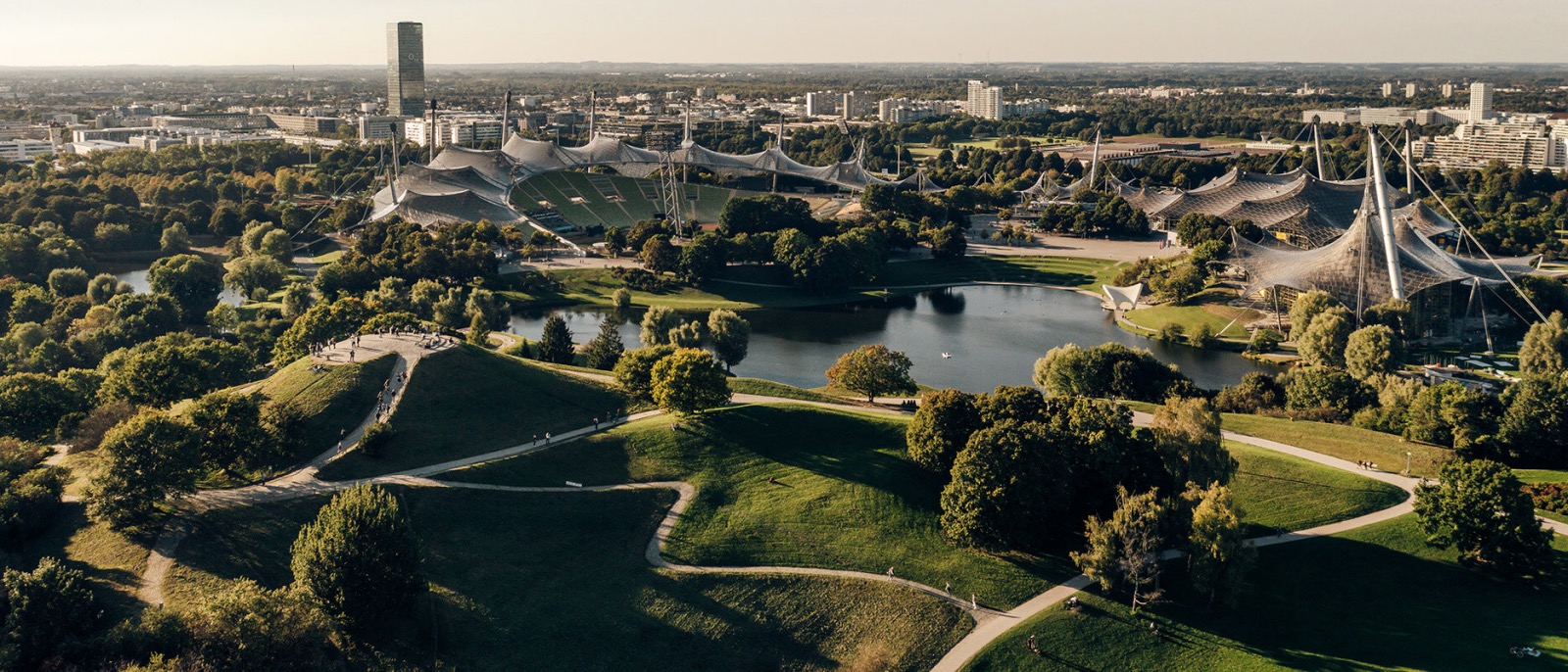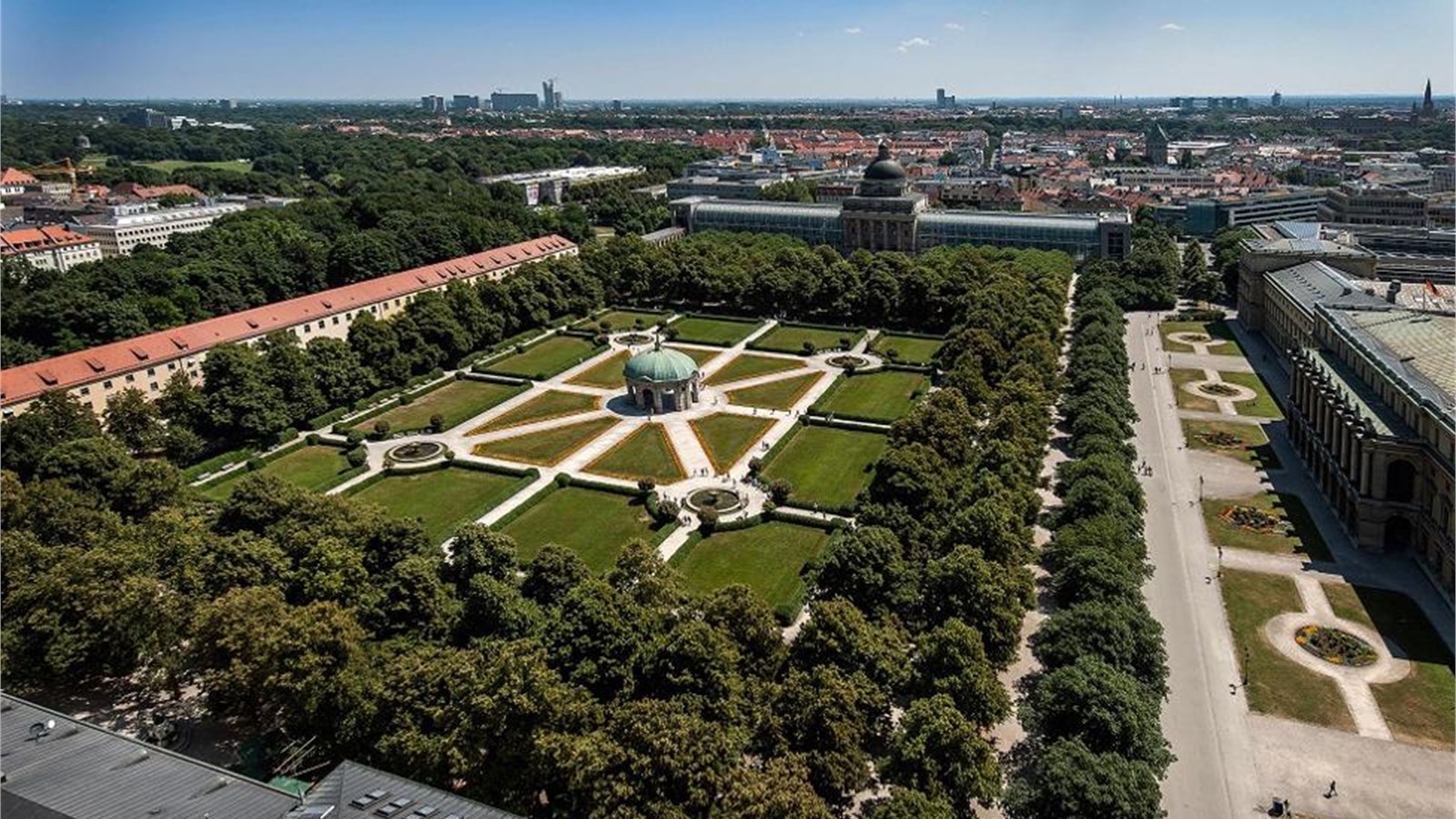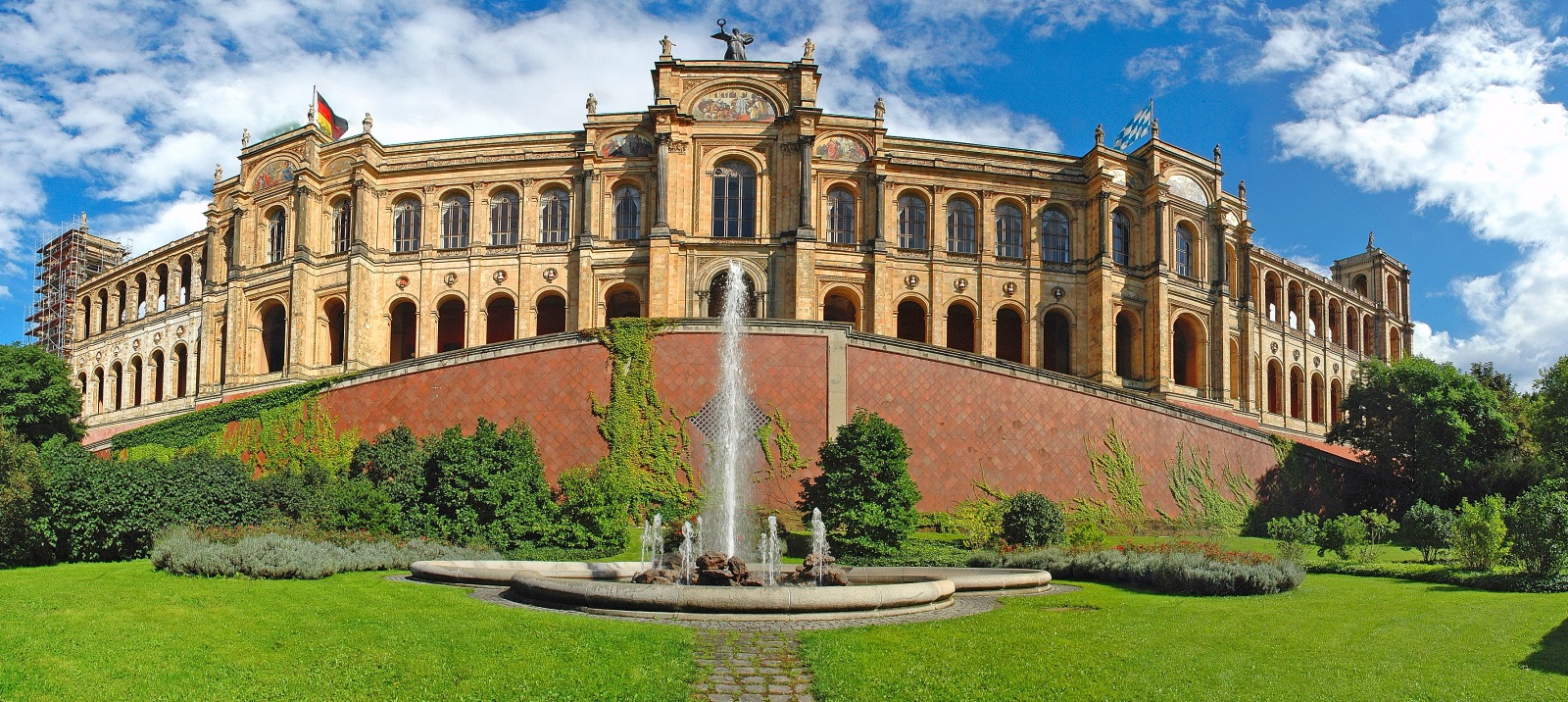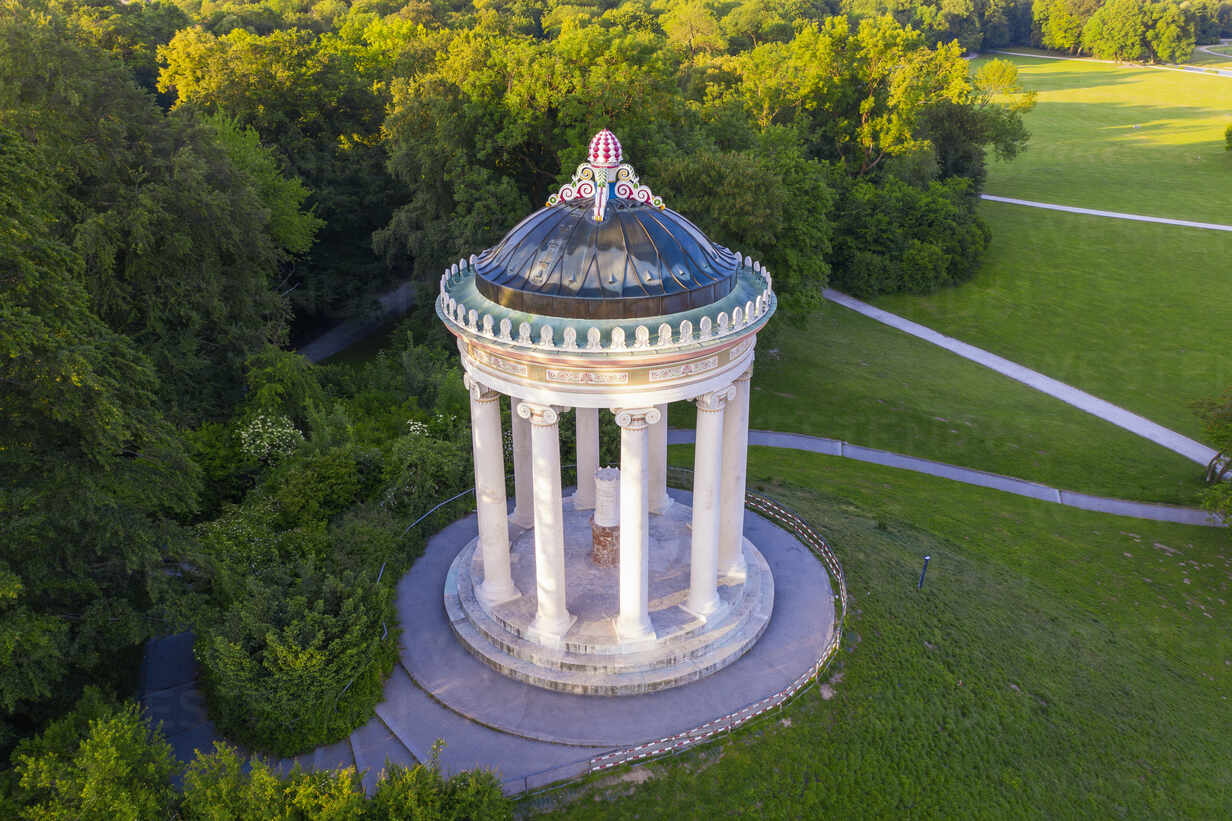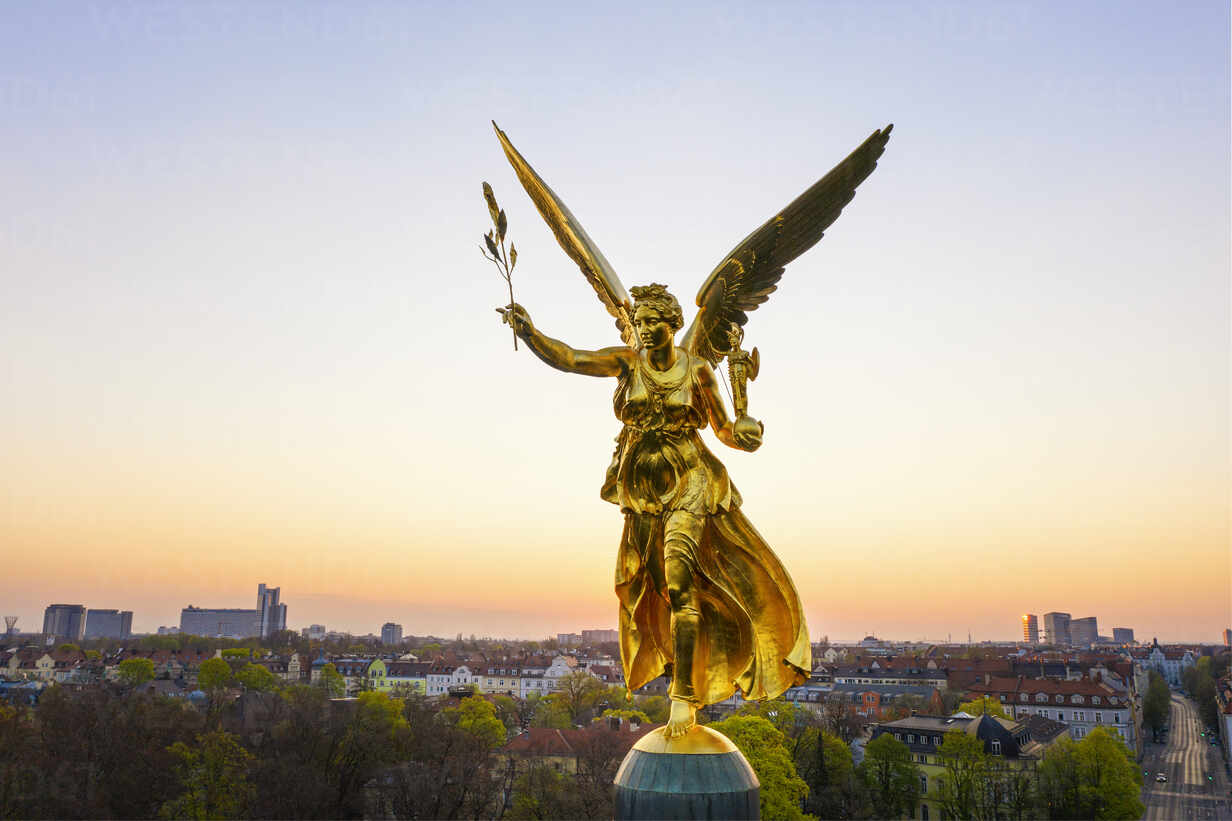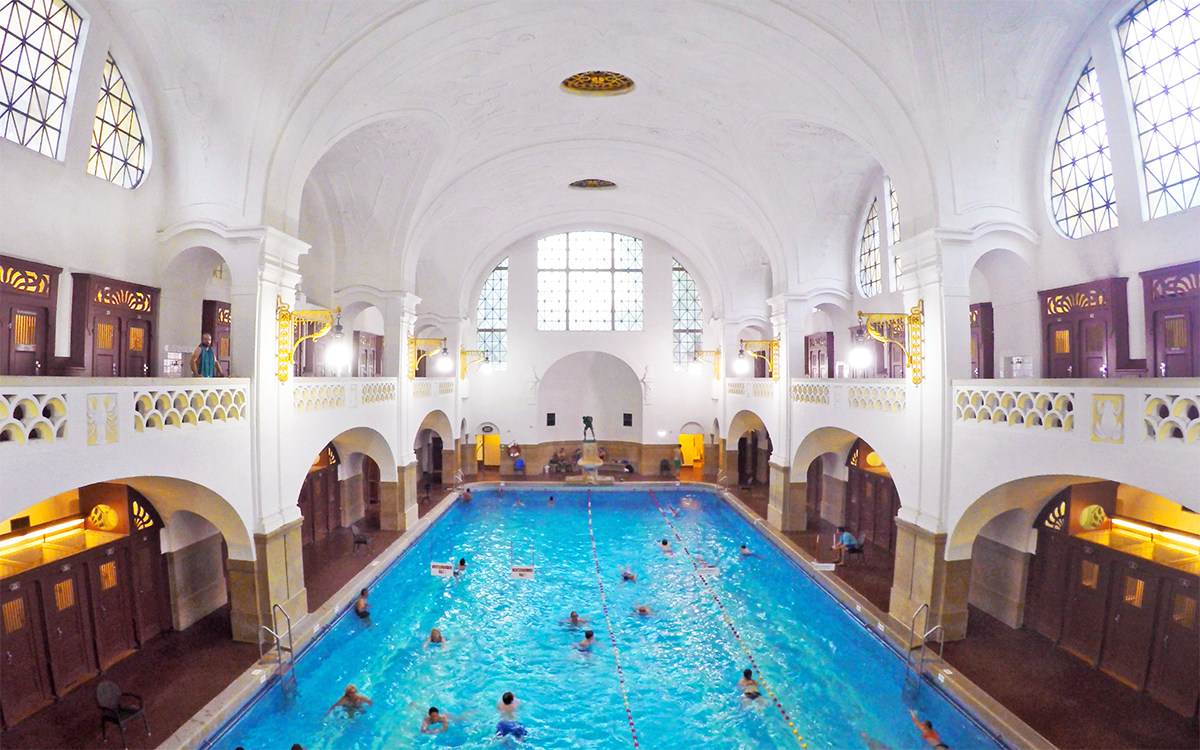
Munich, the vibrant capital of Bavaria in southern Germany, is a city that effortlessly combines rich history with modern urban flair. Known for its Oktoberfest celebrations, world-class museums, and stunning architecture, Munich offers a unique blend of tradition and innovation that captivates visitors from around the globe. One of the city's most iconic landmarks is the Marienplatz, a central square surrounded by historic buildings such as the New Town Hall with its famous Glockenspiel. Munich is also a paradise for art lovers, with institutions like the Alte Pinakothek housing masterpieces by famous artists like Rubens, Dürer, and Rembrandt. Visiting a traditional beer hall is necessary for those seeking to immerse themselves in Bavarian culture. Here, you can savor local brews like Weissbier and indulge in hearty dishes such as schnitzel and pretzels while serenading by live oompah bands.
Nature enthusiasts will find solace in Munich's lush English Garden, a sprawling green oasis in the city's heart perfect for leisurely strolls or picnics. Suppose you're in the mood for a day trip. In that case, the nearby Bavarian Alps offer breathtaking views and endless outdoor activities, making Munich an ideal base for exploring the stunning landscapes of southern Germany. Whether you're fascinated by history, art, or cuisine or simply want to soak up the lively atmosphere of a cosmopolitan city with a small-town charm, Munich has something for everyone. Discover this enchanting destination's magic that blends old-world charm with modern sophistication.
Cultural Insights
Immerse yourself in the rich Bavarian culture of München and discover the local customs and traditions that make this city so unique. Visitors to München will find a blend of modernity with traditional German culture, creating a vibrant and welcoming atmosphere. Here are some insights into the local culture and festivals that visitors should be aware of:
- Bavarian Hospitality: The people of München are known for their warm hospitality and friendly nature. When visiting local shops and restaurants, or meeting locals, be sure to greet them with a friendly "Guten Tag" (Good day) or "Servus" (informal greeting).
- Traditional Attire: München is famous for its conventional Bavarian clothing, such as Lederhosen for men and Dirndls for women. You may see locals dressed in these conventional outfits during special occasions like Oktoberfest or other festivals.
- Beer Culture: Beer is essential to Bavarian culture, and München is home to several historic breweries. When enjoying a beer at a beer garden or festival, be sure to make eye contact when saying "Prost" (cheers) and wait for everyone's glass to be filled before toasting.
- Celebrations and Festivals: One of the most famous festivals in München is Oktoberfest, held annually from late September to early October. This traditional beer festival attracts visitors from around the world to enjoy beer, traditional food, music, and parades. The Starkbierfest (Strong Beer Festival) in spring is another popular event celebrating solid brews.
- Traditional Dances and Music: München is known for its traditional folk dances and music. Visitors may have the opportunity to witness performances of the Schuhplattler dance or live performances of traditional Bavarian music at local events.
By embracing the local customs and traditions of München, visitors can truly immerse themselves in the authentic Bavarian culture and create unforgettable memories during their stay in this vibrant city.
 How to get to Munich
How to get to Munich
Air: The most convenient way to reach Munich is by flying into Munich Airport (MUC), located approximately 28 kilometers northeast of the city center. The airport is well-connected to major cities worldwide with regular flights from international carriers. You can easily reach the city center from the airport by taking the S-Bahn commuter train, which takes around 40 minutes.
Rail: Munich is well-connected to other major cities in Germany and Europe by an extensive rail network. The city has several train stations, mainly Munich Hauptbahnhof (Central Station). You can easily reach Munich by high-speed trains like the ICE from cities like Frankfurt, Berlin, and Vienna.
Road: If you prefer traveling by road, Munich is easily accessible by car via Germany's well-maintained autobahn network. The city is well-connected to major highways, making driving to Munich from cities like Berlin, Frankfurt, and Zurich easy. Just remember that traffic conditions can vary, so checking for any road closures or construction before your trip is advisable.
 How to get around Munich
How to get around Munich
Public Transport: Munich has an excellent public transportation system, including buses, trams, and the S-Bahn and U-Bahn trains. The MVV network covers the entire city and makes it easy to navigate between attractions. You can purchase various tickets depending on your length of stay, including single-trip tickets, day tickets, and group tickets.
Car Rentals: If you prefer the flexibility of having your own vehicle, you can easily rent a car from one of the many rental companies in Munich. Just remember that traffic and parking in the city center can be challenging, so it's often more convenient to use public transportation.
Walking: Munich is a very walkable city, with many of its attractions located within close proximity to each other. Exploring the city on foot is a great way to soak in the vibrant atmosphere and discover hidden gems. Wear comfortable shoes and enjoy the city's pedestrian-friendly streets and pathways.
 What to see in Munich
What to see in Munich
 Hidden Gems in Munich
Hidden Gems in Munich
 Most Instagram-able places in Munich
Most Instagram-able places in Munich
What to do in Munich
- Explore the Rich Culture: Enjoy Munich's rich cultural scene by visiting world-class museums like the Alte Pinakothek and the Deutsches Museum.
- Join a Guided Tour: Take a guided tour of the historic city center to learn about Munich's fascinating history, from the iconic Marienplatz to the stunning Nymphenburg Palace.
- Attend a Festival: Experience the vibrant atmosphere of Munich by attending one of its famous festivals, such as Oktoberfest, Tollwood Winter Festival, or the Christmas markets.
- Adventure Sports: For the adrenaline junkies, head to the nearby Alps for a day of skiing, snowboarding, or hiking during the summer months.
- Shop till you Drop: Discover unique souvenirs and designer boutiques in Munich's shopping districts like Maximilianstrasse, Kaufingerstrasse, and Viktualienmarkt.
- Enjoy the Nightlife: Experience Munich's legendary nightlife by visiting traditional beer halls, trendy cocktail bars, and bustling clubs in neighborhoods like Schwabing and Glockenbachviertel.
What to eat in Munich
When visiting München, also known as Munich, you are in for a culinary treat. The local cuisine of Bavaria is a delightful blend of hearty, flavorful dishes that will satisfy any food lover. From traditional German fare to international fusion cuisine, München offers various dining options to suit every palate and budget.
Must-Try Dishes and Beverages:
- Wurst: No trip to Bavaria is complete without trying the famous German sausages. You will find an array of delicious sausages from the classic Bratwurst to the spicy Currywurst.
- Pretzels: Another iconic Bavarian snack is the pretzel, known locally as Brezn. These soft, doughy treats are perfect for enjoying on the go or with a cold beer.
- Schnitzel: Breaded and fried perfectly, Schnitzel is a must-try dish in München. Whether pork, veal, or chicken, this classic German dish is a favorite among locals and visitors.
- Haxn: For a truly indulgent meal, try Haxn, a roasted ham hock. Tender and flavorful, this dish is often served with potato dumplings and sauerkraut.
- Beer: München is famous for its beer culture, with several traditional breweries and beer gardens dotted throughout the city. Be sure to try local brews like Helles, Weißbier, and Dunkel for an authentic Bavarian experience.
Recommended Dining Options:
- Streetfood Markets: For a casual and unique dining experience, head to one of the many street food markets in München. Here, you can sample various local and international dishes in a vibrant setting.
- Biergartens: Enjoy traditional Bavarian dishes and local beers at one of the city's charming beer gardens. With communal tables and a lively atmosphere, biergartens are a great place to soak up the local culture.
- Beer Halls: Visit one of the historic beer halls in München for a truly authentic dining experience. Indulge in hearty Bavarian fare, such as roast pork knuckle and dumplings, while enjoying live music and a festive ambiance.
- Fine Dining Restaurants: For those looking for a more upscale dining experience, München boasts a range of fine dining establishments offering innovative cuisine and impeccable service. From Michelin-starred restaurants to trendy eateries, there is something for every taste.
Where to stay in Munich
When finding a place to stay in Munich, the city offers many options to suit every budget and preference. From cozy hostels to luxurious hotels, there is something for everyone in this vibrant city.
- Hostels: For budget-conscious travelers or those looking to meet fellow adventurers, staying in a hostel is a great option. Areas like the Glockenbachviertel and Schwabing are popular for hostel accommodations, offering a lively atmosphere and easy access to public transportation.
- Mid-Range Hotels: If you want comfortable yet affordable accommodation, consider staying in one of Munich's mid-range hotels. Areas like the Altstadt-Lehel and Maxvorstadt are ideal for finding well-located hotels that won't break the bank.
- Luxury Hotels: For those seeking a touch of luxury and impeccable service, Munich boasts several high-end hotels that promise a truly indulgent experience. The upscale neighborhoods of Bogenhausen and Haidhausen are known for their luxury hotels, offering top-notch amenities and a refined atmosphere.
When choosing where to stay in Munich, it's essential to consider factors such as safety, convenience, and proximity to attractions. The Altstadt (Old Town) is an excellent choice for first-time visitors, as it is close to many of Munich's landmarks, shopping streets, and cultural sites. Additionally, areas like Schwabing and Haidhausen offer a blend of charm, convenience, and local flair, making them ideal for a memorable stay in the city.
 First Time Travelers
First Time Travelers
Must-Do Activities:
- Visit the iconic Marienplatz: Explore the historic city center and marvel at the stunning architecture of the New Town Hall.
- Indulge in Bavarian cuisine: Don't miss trying traditional dishes like bratwurst, pretzels, and schnitzel at a local beer hall.
- Experience the Hofbräuhaus: Immerse yourself in Munich's beer culture at this famous beer hall, where you can enjoy a stein of beer and live music.
- Stroll in the English Garden: Relax in one of Europe's largest urban parks, watching surfers ride the Eisbach wave or enjoy a picnic by the lake.
- Explore the Residenz: Step back in time at the former royal palace of the Bavarian monarchs, with its opulent rooms and beautiful gardens.
Practical Tips:
- Language: While German is the official language, English is widely spoken in Munich, especially in tourist areas. Learn a few basic phrases to enhance your experience.
- Transportation: Munich has an efficient public transportation system, including buses, trams, and the U-Bahn (subway). Consider getting a Munich Card for unlimited travel on public transport.
- Cash vs. Card: While most places accept credit cards, having some cash on you is always handy, especially for smaller purchases or at traditional establishments.
- Cultural Etiquette: Remember to greet people with a handshake, be punctual, and respect local customs, such as avoiding jaywalking and sorting trash correctly.
- Weather: Pack according to the season; Munich experiences cold winters and warm summers. Don't forget an umbrella, as the weather can be unpredictable.
With this beginner's guide, you're ready to immerse yourself in the charm of Munich and create unforgettable memories in this fascinating city. Enjoy your adventures!
 For Return Travelers
For Return Travelers
New and Lesser-Known Discoveries:
- Stroll through the vibrant Sendlinger Tor area, known for its eclectic mix of boutiques, cafes, and street art. Don't miss the hidden courtyards and alleys that reveal a bohemian side of Munich.
- Explore the Kunstareal, Munich's art district, beyond the famous museums. Visit smaller galleries and art studios to discover emerging local artists and unique contemporary art pieces.
- Join a traditional Bavarian cooking class to learn how to prepare authentic dishes like pretzels, schnitzel, and dumplings. Engage with local chefs and delve into the culinary heritage of the region.
- Embark on a guided walking tour of Munich's street art scene, uncovering hidden murals, graffiti, and urban art installations that glimpse the city's alternative culture and creative expression.
- Escape the city crowds and hike along the Isar River, where you can find peaceful nature spots, hidden sculptures, and scenic viewpoints. Enjoy a picnic with local delicacies and immerse yourself in the tranquil surroundings.
For a more profound cultural immersion, consider:
- Participating in a traditional beer brewing workshop to learn about the history and techniques of Bavarian brewing. Visit local breweries, sample different beer styles, and gain insights into the beer culture of Munich.
- Staying with a local host family through homestay programs to experience everyday life in Munich, share meals, and engage in cultural exchange. Learn about local traditions, customs, and language from a firsthand perspective.
- Join a guided tour focused on Munich's wartime history, explore sites related to World War II, and learn about the city's past. Visit memorials, bunkers, and historical landmarks to understand Munich's complex heritage better.
- Attending a classical music concert or opera performance at one of Munich's renowned venues, such as the Bavarian State Opera or the Philharmonie. Immerse yourself in the city's rich musical legacy and enjoy world-class performances.
For a different perspective, venture to:
- Take a day trip to the picturesque town of Nuremberg, known for its medieval architecture, historic castle, and vibrant markets. Explore the Old Town, visit museums, and savor local specialties like Nuremberg sausages.
- Discover the scenic beauty of the Bavarian Alps with a day excursion to the charming town of Garmisch-Partenkirchen. Explore alpine landscapes, hike to mountain viewpoints, and experience traditional Bavarian hospitality in local restaurants.
- Visit the Dachau Concentration Camp Memorial Site for a somber yet educational experience about the Holocaust and World War II. Take a guided tour to learn about the camp's history, reflect on the atrocities committed, and honor the memory of the victims.
- Explore the offbeat neighborhood of Haidhausen, known for its hip cafes, vintage shops, and hidden gems. Wander along the Isar River, browse local markets, and soak up the laid-back atmosphere of this up-and-coming district.
 Munich travel information
Munich travel information
Munich is generally a safe city for travelers, with low crime rates. However, as with any destination, it's important to stay vigilant and aware of your surroundings, especially in crowded tourist areas and on public transportation. Avoid carrying large amounts of cash or valuable items, and be cautious of pickpockets in busy places.
The best time to visit Munich is spring and early autumn, from March to May and September to October. The weather is pleasant during these times, and you can enjoy outdoor activities comfortably. The city is also less crowded compared to the peak summer months.
If you prefer to visit Munich when it's less crowded but still have a good time, consider traveling in November or February. While the weather may be colder, you can experience the city's cultural and culinary scene without the peak tourist influx. You may also find better accommodations and activities deals during these months.
Munich is considered a moderately expensive city for travelers, especially regarding accommodation and dining. To budget wisely, consider staying in affordable guesthouses or hostels, dining at local eateries and beer halls, and taking advantage of free walking tours and public parks. Additionally, purchasing a Munich City Pass can provide discounts on attractions and transportation.
Healthcare standards in Munich are excellent, with state-of-the-art facilities and highly trained medical professionals. Travelers should have comprehensive travel insurance covering medical expenses in emergencies. No specific vaccinations are required for visiting Munich, but it's always good to be up to date on routine vaccinations before any trip.
Travelers from the European Union (EU) and Schengen Area countries do not need a visa to visit Germany, including Munich, for stays up to 90 days within a 180-day period. However, visitors from other countries may require a Schengen visa. Check the specific visa requirements based on your nationality and travel plans well before your trip.
City Map
Weather
-
January
Min
-1°C (30°F) Max
3°C (37°F) Precipitation
12 days -
February
Min
-2°C (28°F) Max
5°C (41°F) Precipitation
10 days -
March
Min
1°C (34°F) Max
10°C (50°F) Precipitation
11 days -
April
Min
4°C (39°F) Max
14°C (57°F) Precipitation
11 days -
May
Min
8°C (46°F) Max
19°C (66°F) Precipitation
12 days -
June
Min
12°C (54°F) Max
23°C (73°F) Precipitation
13 days -
July
Min
14°C (57°F) Max
25°C (77°F) Precipitation
12 days -
August
Min
14°C (57°F) Max
25°C (77°F) Precipitation
11 days -
September
Min
10°C (50°F) Max
20°C (68°F) Precipitation
8 days -
October
Min
6°C (43°F) Max
14°C (57°F) Precipitation
9 days -
November
Min
2°C (36°F) Max
7°C (45°F) Precipitation
11 days -
December
Min
-1°C (30°F) Max
3°C (37°F) Precipitation
12 days
 AIdventuro's pocket guide for Munich
AIdventuro's pocket guide for Munich
- English Garden: A sprawling green oasis in the heart of the city, perfect for a leisurely stroll or a relaxing picnic.
- Marienplatz: The central square of Munich, surrounded by stunning architecture and bustling with activity, especially during the famous Glockenspiel show.
- Nymphenburg Palace: A magnificent Baroque palace with beautiful gardens, fountains, and picturesque lakes.
- Respect the local customs and traditions, such as greeting with a handshake and saying 'Prost' (cheers) before drinking.
- Take note of quiet hours in residential areas to avoid disturbances, especially during Sundays and holidays.
- When visiting churches or other religious sites, dress modestly and avoid loud behavior.
- Bratwurst: A traditional Bavarian sausage, usually served with sauerkraut and mustard.
- Pretzels: Classic German bread twisted into a unique shape, best enjoyed with butter or mustard.
- Schnitzel: Thin breaded and fried meat, typically pork or veal, served with potatoes or salad.
Munich is generally a safe city for travelers, but it's always advisable to take precautions such as:
- Keep an eye on your belongings in crowded tourist areas to avoid pickpocketing.
- Stay alert when using public transportation, especially at night.
- Obey traffic rules and watch out for cyclists when crossing the streets.
For a budget-friendly trip to Munich lasting 3 days, you can expect to spend around $300-$500 on accommodation, meals, and local transportation. For a more extensive 5-day visit, budget between $500-$800, depending on your spending habits and choice of activities.
One of the most popular things to do in Munich is to visit the iconic Hofbräuhaus beer hall, where you can experience authentic Bavarian beer culture, live music, and hearty local dishes. Don't miss the opportunity to raise a stein in this historic establishment!

